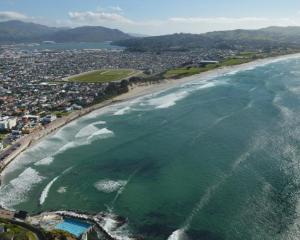
The public may be getting weary of the many issues over this which began to emerge as the ink had barely dried on the coalition agreements, but the saga continues to smoulder and flare.

Labour has sought the investigation, alleging there are signs of "industry influence" around the decision which involved the halving of excise tax on HTPs in July and the setting aside of a $216 million contingency to cover estimated lost revenue.
In the general debate in Parliament on Wednesday, in a not always coherent speech critical of Dr Verrall’s call, Mr Peters defended Associate Health Minister Casey Costello who is also customs minister.
At one point he asked why Dr Verrall was against a 12-month trial of HTPs to see if it got people off harmful smoking.
Critics of the New Zealand First position on this might have felt it was a Freudian slip when he went on to say "our aim is to make harmful products more appealing to current cigarette smokers — that’s why the temporary trial".
Presumably, he meant to say less harmful products.
However, it was what came next which was controversial. He said it had come to his attention a close relative of Dr Verrall’s had been involved with attending meetings, had access to papers and had been advising Ms Costello over the past year on the tobacco issue without declaring a conflict of interest.
Labour leader Chris Hipkins initially described the person as a "distant relative" of Dr Verrall’s and said he had been assured there were no issues.
Next day in the House, under the guise of giving a personal explanation related to what he had said the previous day, Mr Peters outed the public official as Dr Verrall’s sister-in-law and named her, saying that she had not declared any conflict of interest to Ms Costello.
Later, the Ministry of Health clarified the staff member had followed its protocols to manage the conflict, but that it had been remiss in not specifically informing Ms Costello about the situation. It apologised to Ms Costello.
It seems a stunning oversight by the ministry, but it is also concerning Mr Peters did not establish what the situation was before naming the employee in the House with the protection of parliamentary privilege.
As a public servant she cannot go public to defend herself against any aspersions being cast about her behaviour by Mr Peters.
The irony of finger-pointing about conflicts of interest coming from New Zealand First will not be lost on those aware of the various questions which have been raised for months about the part Big Tobacco may have had in setting that party’s agenda on smoking issues.
Ms Verrall, in her letter to the auditor-general, asks whether the tax cut may breach the World Health Organisation Framework Convention on Tobacco Control, requiring New Zealand to protect policies from "commercial and other vested interests" of the tobacco industry. She is not the only one to do so.
Thus far, Prime Minister Christopher Luxon has chosen to distance himself from the drama, looking the other way at the performance of Casey Costello, despite her office falling foul of the chief ombudsman twice, and ongoing concerns about transparency around her decision-making.
This whole matter has become so messy and murky it would be good to see a comprehensive independent examination of it.
Ms Costello has been reported as saying she would welcome an inquiry as it would show the allegations made by Dr Verrall to be "completely untrue".
Whatever the auditor-general decides to do, there is still a long way to go before the smoke clears on this issue.













